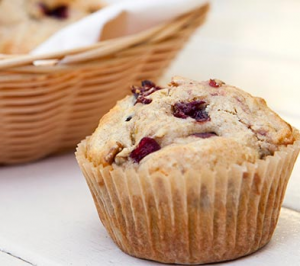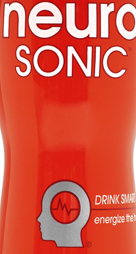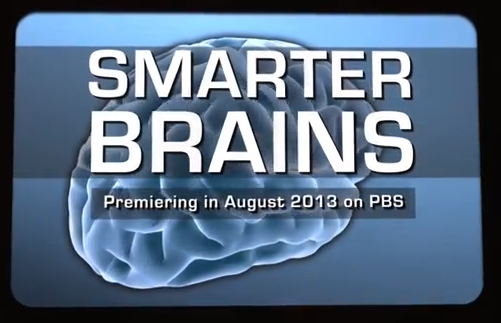More Items for Your Brain Foods List
 In the Next Brain blog we report on foods that offer some scientific promise of either protecting your brain health or improving cognitive performance. A list of 10 Top Foods to Boost Brainpower published by Forbes Magazine caught my eye. While it includes items typically found on such lists – for example blueberries, curry and walnuts – it also includes many I don’t normally see such as chickpeas, celery and crab.
In the Next Brain blog we report on foods that offer some scientific promise of either protecting your brain health or improving cognitive performance. A list of 10 Top Foods to Boost Brainpower published by Forbes Magazine caught my eye. While it includes items typically found on such lists – for example blueberries, curry and walnuts – it also includes many I don’t normally see such as chickpeas, celery and crab.
The claim about crab is particularly interesting. A serving exceeds your daily requirement of phenylalanine, an amino acid that is needed to create dopamine. I am going to do a little research into that and will blog my findings.
Source of image: openclipart.org
Categories: Cognitive Decline, Diet Tags:
More Evidence that Chocolate is Good for the Brain
 A recent study demonstrated that two cups of hot cocoa a day for a month improved brain health and thinking skills in the elderly. The study included 60 people who on average were in there 70s. Those participants with impaired blood flow showed an 8.3% percent improvement in blood flow and a 31% improvement in response time on a working memory test.
A recent study demonstrated that two cups of hot cocoa a day for a month improved brain health and thinking skills in the elderly. The study included 60 people who on average were in there 70s. Those participants with impaired blood flow showed an 8.3% percent improvement in blood flow and a 31% improvement in response time on a working memory test.
In more technical terms:
There is a strong correlation between neurovascular coupling and cognitive function, and both can be improved by regular cocoa consumption in individuals with baseline impairments. Better neurovascular coupling is also associated with greater white matter structural integrity.
Neurovascular coupling refers to the link between brain activity and the amount of cerebral blood flow. Better blood flow, better thinking. This is a new finding.
Participants consumed no other chocolate during the test.
Categories: Cognitive Decline, Diet, Memory and Learning, Older Adult Tags:
Slaking Thirst Boosts Response Time by 14%
 Being thirsty might be distracting enough to significantly interfere with your results on a simple response time test. At least that is what recent research reported in the Frontiers in Human Neuroscience suggests.
Being thirsty might be distracting enough to significantly interfere with your results on a simple response time test. At least that is what recent research reported in the Frontiers in Human Neuroscience suggests.
The Live Science blog summarizes the experiment nicely in the post, Drinking Water May Provide a Mental Boost. The bottom line:
“In the study, participants who drank about three cups of water (24 ounces, or 775 milliliters) before taking a battery of cognitive tests performed better on a test that measured reaction times compared with those who did not drink water…Reaction times were 14 percent faster among the water group than the no water group.”
For this effect to work participants needed to feel thirsty and were asked to avoid eating and drinking over the night before the experiment.
The article goes on to report that the link between slaking your thirst and cognitive performance is far from clear.
Categories: Diet Tags:
14 Tasty Recipes With Brain Enhancing Ingredients
 The AARP has an excellent article on brain boosting foods. It covers 14 recipes ranging from pecan cranberry and orange muffins to an asparagus, mushroom and ham quiche with a potato crust. You get a full recipe for each dish as well as a brief explanation of the brain enhancing ingredients.
The AARP has an excellent article on brain boosting foods. It covers 14 recipes ranging from pecan cranberry and orange muffins to an asparagus, mushroom and ham quiche with a potato crust. You get a full recipe for each dish as well as a brief explanation of the brain enhancing ingredients.
The information comes directly from the book, ThinkFood: Brain Healthy Recipes. The AARP worked with Posit Science to collect ideas from 50 renown food bloggers. Unfortunately, the book is currently unavailable. I am interested to hear from readers that have a copy and want to share their favorite recipe.
Categories: Books, Cognitive Development, Diet Tags:
Categories: Cognitive Development, Diet, IQ and EQ, Lifestyle, Training Tags:
Raising Your Kid’s IQ – What Science Tells Us
 If you were to carefully review the scientific studies of the things parents can do to boost their kids’ IQ what would you find? That is exactly what researchers as the NYU Steinhardt School of Culture, Education, and Human Development did and here is what they found:
If you were to carefully review the scientific studies of the things parents can do to boost their kids’ IQ what would you find? That is exactly what researchers as the NYU Steinhardt School of Culture, Education, and Human Development did and here is what they found:
Overall, the results of the meta-analyses indicated that certain dietary and environmental interventions can be effective in raising children’s IQ.
More specifically:
- Pregnant moms or newborn that eat foods rich in Omega-3 can boost IQ by 3.5 points
- Interactive reading or reading with your child boosts IQ by 6 points if they are 4 years old or less
- Going to preschools that includes a language component boosts IQ by 7 points.
Increases in IQ are approximate but these are meaningful improvements.
The researcher expect to uncover additional insights which I will blog about. In the meantime I am interested to hear from readers about specific ways to boost a kid’s IQ.
Categories: Cognitive Development, Diet, Training Tags:
Is Turmeric a Super Brain Spice?
 Psychology today has an interesting post on the brain boosting effects of Curry. They claim over 4000 studies of Curry’s health benefits have been conducted over the last 10 years. General findings for brain function and cognitive performance are that Curry containing tumeric can:
Psychology today has an interesting post on the brain boosting effects of Curry. They claim over 4000 studies of Curry’s health benefits have been conducted over the last 10 years. General findings for brain function and cognitive performance are that Curry containing tumeric can:
decrease the risk of dementia, stimulate the grow of new brain cells, increase the production of neurotransmitters that support clear thinking and good moods and is being a strong antioxidant it will reduce inflammation that can harm brain cells.
The key ingredient in Curry that is doing the brain work is the turmeric, a spice you can buy in local your grocery store. The article goes on to suggest other spices to use it with and a recipe to try. For example, using turmeric with black pepper enhances absorption of the spice into your system by 2000%.
I am going to experiment with turmeric and try and find ways to include it in my daily diet. Besides curry-based meals there are for example turmeric teas, eggs, fries and salads to try and even special turmeric or curcumin supplements.
Categories: Cognitive Development, Diet, Mental Focus Tags:
Multivitamin Improves Memory in Older Men
 That is the conclusion of one study carried out on 51 men ages 50-74.
That is the conclusion of one study carried out on 51 men ages 50-74.
“The results showed multivitamin supplementation, compared to placebo, significantly improved recognition memory performance, although other cognitive function parameters did not differ between the treatment groups.”
The study goes on to suggest it might also help avoid age-related cognitive decline.
I am interest to hear from readers that use multivitamins to improve brain function or cognitive performance.
Categories: Cognitive Decline, Diet, Memory and Learning, Older Adult Tags: vitamins
Some Foods Boost Moods Like Prescription Drugs
![]() Being in a positive mood can speed learning, deepen creativity and otherwise improve our cognitive performance. So I am always on the lookout for scientific research on how to create and sustain positive moods. For example, at a recent meeting of the American Chemical Society, researchers reported:
Being in a positive mood can speed learning, deepen creativity and otherwise improve our cognitive performance. So I am always on the lookout for scientific research on how to create and sustain positive moods. For example, at a recent meeting of the American Chemical Society, researchers reported:
“The large body of evidence that chemicals in chocolate, blueberries, raspberries, strawberries, teas and certain foods could well be mood-enhancers encourages the search for other mood modulators in food,” noted Martinez-Mayorga”
We have reported on some of these foods before in the Next Brain Blog because there is evidence they boost brain function and cognitive performance directly. Some are new – teas, raspberries and strawberries. Interestingly, the active ingredient that seems to be doing the work is similar to the active ingredient (valproic acid) in prescription mood stabilizers such as Depakene, Depakote and Stavzor.
What techniques do you use to enhance and prolong productive moods?
Categories: Diet, Manage Emotions Tags:
Mental Performance In Every Bottle?
 … or so claims the by-line for Neurosonic, a new energy drink tuned to enhance brain function and cognitive performance. These drinks go beyond caffeine, sugar and vitamins to include amino acids such as L-theanine and brain chemicals such as Phosphatidylserine. There is some scientific evidence that such additives can produced improved memory and concentration as well as efficient task switching.
… or so claims the by-line for Neurosonic, a new energy drink tuned to enhance brain function and cognitive performance. These drinks go beyond caffeine, sugar and vitamins to include amino acids such as L-theanine and brain chemicals such as Phosphatidylserine. There is some scientific evidence that such additives can produced improved memory and concentration as well as efficient task switching.
Could be an important development but do they produce noticeable improvements in everyday life?
For additional discussion check on the article Bottles Full of Brain Boosters in Discover Magazine.
Interested to hear from readers that have used Neurosonic products or any other brain drink that goes beyond sugar, caffeine and vitamins.
Categories: Diet, Memory and Learning, Mental Focus Tags:

